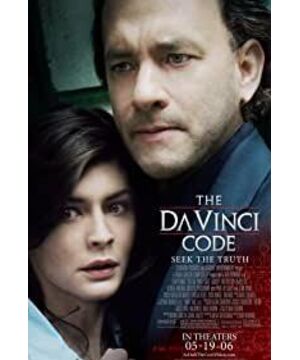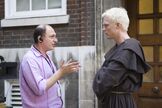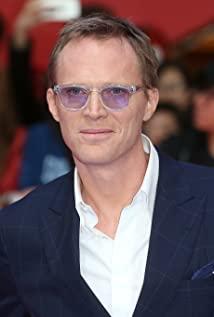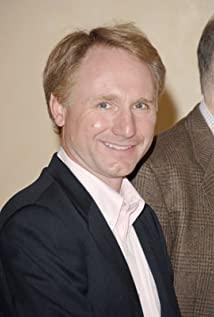Because the novel is so wonderful, it is not easy to make a good movie. This is a law we always think of.
The film of "The Da Vinci Code" has been adapted quite a bit from the original, mainly focusing on "condensation", which makes the plot of the film look more compact. I'm not sure if people who haven't read the original can understand the movie well-I remember when the movie first came out, I hadn't read the original, and the movie was less than half of the time I was not interested. I thought this movie was completely hyped up.
Now that I finished reading the book, I watched a movie right after that. Shout out and thank the director!
After reading the book, I have the urge that most people would have: go to the Louvre, go to France, go to the Rose line church, go to the Newton’s Tomb, go to the United Kingdom. I can’t have the heart-moving experience of the protagonist of the story, at least I have to go there in person. Take a look at those places and get in touch with history up close. If the idea of traveling cannot be realized for the time being, at least you have to take pictures of "Mona Lisa" and "The Last Supper" from the Internet, and carefully study whether it is what the book says.
Before I had time to do these things, the movie gave me everything.
I can even admire the Louvre with a better visual angle than when I travel by myself, and observe the "Last Supper" with Teabing's high-tech monitor... I don't need to hold the "travel guide" to get to the Temple Church and Ross Lin Church.
Those who read the original book of "The Da Vinci Code" and want to watch the movie also have this purpose, right? This is a movie that makes me rarely care about the plot (of course the plot of the movie is not bad). Watching it is like watching a Discovery documentary, a documentary with a better film technique, recording God and The history of people, religion and war, truth and lies. I especially liked the scene where Langdon and Sophie went to Newton’s Tomb. The modern and ancient scenes blended together, fictional and real, walking into the church with the people who flocked to the church a hundred years ago. This is also what attracts me to the ancient buildings-when you walk into them, under your feet are the bricks and stones that people who died hundreds of years ago have also stepped on, and the walls that have been touched... you can imagine that. The scene of the time, and even integrate yourself into it.
What history and religion have brought to people is difficult to determine whether they are good or bad. But what it left over after the time has passed, always makes me awe.
View more about The Da Vinci Code reviews











